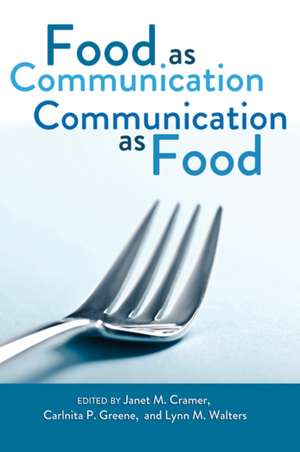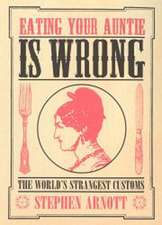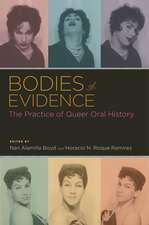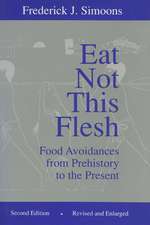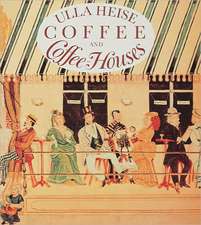Food as Communication. Communication as Food: Relational Pedagogy and Internet Technology
Editat de Janet M. Cramer, Carlnita P. Greene, Lynn M. Waltersen Limba Engleză Hardback – 15 mar 2011
| Toate formatele și edițiile | Preț | Express |
|---|---|---|
| Paperback (1) | 442.39 lei 6-8 săpt. | |
| Peter Lang Gmbh, Internationaler Verlag Der W – 30 ian 2011 | 442.39 lei 6-8 săpt. | |
| Hardback (1) | 762.65 lei 39-44 zile | |
| Peter Lang Gmbh, Internationaler Verlag Der W – 15 mar 2011 | 762.65 lei 39-44 zile |
Preț: 762.65 lei
Preț vechi: 838.07 lei
-9% Nou
Puncte Express: 1144
Preț estimativ în valută:
145.97€ • 151.82$ • 122.32£
145.97€ • 151.82$ • 122.32£
Carte tipărită la comandă
Livrare economică 10-15 martie
Preluare comenzi: 021 569.72.76
Specificații
ISBN-13: 9781433109638
ISBN-10: 1433109638
Pagini: 465
Dimensiuni: 151 x 228 x 32 mm
Greutate: 0 kg
Ediția:2. Auflage.
Editura: Peter Lang Gmbh, Internationaler Verlag Der W
ISBN-10: 1433109638
Pagini: 465
Dimensiuni: 151 x 228 x 32 mm
Greutate: 0 kg
Ediția:2. Auflage.
Editura: Peter Lang Gmbh, Internationaler Verlag Der W
Notă biografică
Janet M. Cramer, PhD, is an Associate Professor in the Communication and Journalism Department at the University of New Mexico, where she teaches a variety of courses in media studies, journalism, and communication at the undergraduate and graduate level. Her research focuses on the cultural studies of media, including food, gender studies, and media history. She has written a history of media focusing on the cultural and intellectual traditions that have guided media development in the United States, titled Media/History/Society: A Cultural History of U.S. Media (2009). Carlnita P. Greene, PhD, is an assistant professor and Director of the Communication & Rhetoric program at Nazareth College of Rochester. Her research can be broadly defined as the intersection of rhetorical theory and popular culture. She has previously published on subjects as diverse as food culture and the media, identity and social style, rhetorical theory in the twenty-first century, and popular culture and pedagogy. Lynn M. Walters, M.S., is founder and Executive Director of Cooking with Kids, Inc., an award-winning non-profit organization that engages elementary school children in hands-on experience with fresh, affordable foods from diverse cultures. Her research interests focus on the behavioral effects of experiential learning with food; family, peer, and environmental influences on cooking and food choice; and the connections between pleasure and health.
Cuprins
Recenzii
'Food as Communication: Communication as Food' is a wonderful introduction to this field of food studies research. These authors watched movies and television, examined package labels, visited exotic places, delved in wonderful libraries, and ate great food, and analyzed the meaning of these experiences for modern identity, culture, and politics. Anyone interested in what food can tell us about ourselves and our neighbors will want to read this book. (Marion Nestle, Professor of Nutrition, Food Studies, and Public Health at New York University, and author of 'Food Politics and What to Eat') Collectively, the manuscript is an assembly prism that disperses light, making transparent food's constitutional force and pervasive influence in most aspects of our daily lives. In addition to being well-organized and well-written, all of the chapters are amazingly free of academic jargon, which make them readily understandable. (Jane Ferry, Webster University) This fascinating collection of research articles walks the reader through history and space, the ages and the professions to get at the nitty-grittyness of this power [...] To make food visible, the authors rightly observe food in very specific ways as each tries to examine the meaning of the particular phenomenon under study making use of food as the 'communicator' of that meaning. (Toni Liquori, School Food FOCUS, and Nutrition Program, Adjunct Full Professor, Teachers College Columbia University) Yum! Finally, a meaty volume for scholars and students interested in food and communication in a wide variety of contexts. 'Food as Communication' offers many smart, accessible essays about our food discourses, recommending its use for courses in media and cultural studies, interpersonal/organizational/intercultural communication, and environmental studies alike. (Kathleen LeBesco, Co-editor, 'Edible Ideologies: Representing Food and Meaning', Professor of Communication Arts, Marymount Manhattan College) Cramer, Greene, and Walters have assembled an impressive volume that constitutes a map for the edible turn in environmental communication. Together, these essays reveal the power of food as a site of critical awareness, linking our daily biological needs to issues of language, media, identity and environmental policy. (Andy Opel, PhD, Associate Professor and Director, Media Production Program, Florida State University) This volume contributes significantly to Food Studies by clearly defining one discipline's potential for understanding the subject. In twenty-two chapters of international scope, it outlines theories and methods in the field of Communication and demonstrates how they are applicable to understanding food as social, cultural, political, and personal discourse. An excellent resource! (Lucy Long, PhD, Instructor, International Studies & American Culture Studies, University of Pennsylvania)
